Meet the Parent Leaders of the 2021-2022 Parent Advocate Policy Lab
The EdTrust–New York designed the Parent Advocate Policy Lab to expand parent leaders’ knowledge of new funding sources and to support their advocacy efforts. Parent advocates will help to ensure local education leaders invest funding in ways that meet the needs of all learners — especially those most impacted by the pandemic. Throughout the 10-month Lab experience, these parents will develop skills in policy writing, power mapping, and advocacy strategies to help advance education equity. Working collaboratively with a statewide cohort of leaders, parents also broaden their understanding of the statewide educational landscape and develop new ideas of how new resources can be used in their respective districts.

CJ Banks
Parent of students in PreK, 6th, 9th, 10th, and 11th grades, Buffalo Public Schools, Western New York
“Educational equity means that all students have the same opportunity to succeed. This means that before students can get to an "equal" chance, all children should start from the same starting line, have no barriers, and access to the opportunities and support they need to succeed.”
CJ Banks resides in Buffalo and currently serves as the director of parenting and youth services at EPIC – Every Person Influences Children.
He received his bachelor’s degree in psychology with a minor in early childhood development, a graduate certificate in mental health counseling and is finalizing his master’s in clinical mental health counseling. Furthermore, he is a certified instructor of youth mental health first aid.
In addition to working at EPIC, CJ is a proud husband and father of 10 children, including five biological children, one who was adopted, and four who his family is fostering with the intent to adopt. CJ’s life mission is to help as many youths and families overcome adversity as he can and to have a life filled with promise and possibility. He believes that all parents should have access to the tools they need to advocate for their child’s education and have the support and ability to do so, yet many parents are unaware of the communitywide education changes they can have agency in.
How do you hope to use your voice to advance educational equity in New York?
I will continue investing energy into issues that affect underserved youth in our community and gain as much knowledge as possible. I am also committed to engaging other parents who need my support in becoming strong advocates for their child in their schools.
In your own words, what does educational equity look like to you?
Educational equity means that all students have the same opportunity to succeed. This means that before students can get to an “equal” chance, all children should start from the same starting line, have no barriers, and access to the opportunities and support they need to succeed.
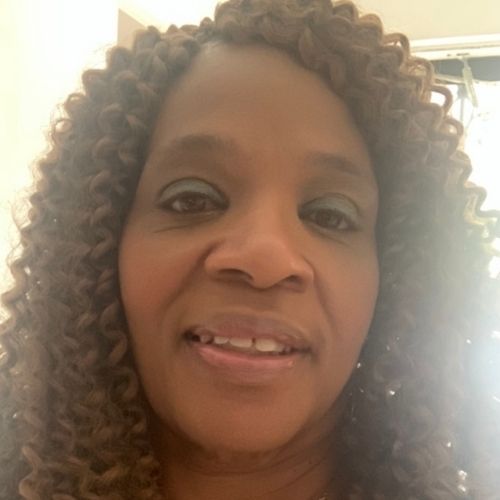
Debra Gray
Parent of students in 6th and 8th grades, New York City Department of Education
"Educational equity to me should mean that every student has the same chance as the next."
Debra takes pride in representing and serving families within the Ocean Hill Brownsville community. She has worked closely with students as a school aide, as well as a member of the Parent Teacher Association at various public schools in New York City. Additionally, Debra was elected as the first PTA President for Metropolitan Diploma Plus in Brooklyn, and currently is on the Title 1 District Parent Advisory Council for District 23, the co-chair of the district leadership team, and vice president of Mother’s and Mentors. Recently, Debra and the District 23 Community Education Council successfully advocated for families to receive workshops on social-emotional strategies to help their children.
Debra loves working with children, especially when a child’s face lights up when they learn something and master it. When she served as a school aide, she enjoyed helping students solve problems and guiding parents as they navigated their children’s school.
How do you hope to use your voice to advance educational equity in New York?
By speaking out on Facebook and Instagram and reaching out to school communities such as Community Education Councils and the President Council. If there is a rally, I will do my best to attend.
In your own words, what does educational equity look like to you?
Educational equity to me should mean that every student has the same chance as the next.
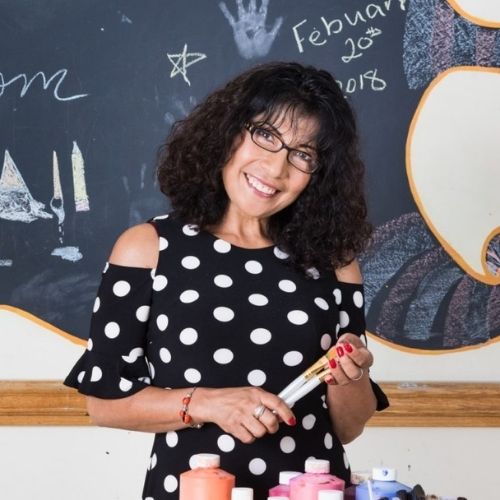
Fanny Villarreal
Parent of a 10th grade and college student, Westhill Central School District, Central New York
"Educational equity to me means that all students have access to the tools they need to meet their unique needs and become successful."
Fanny currently serves as the executive director of Syracuse YWCA, which aims to eliminate racism and empower women. She was born and raised in Peru. Since she moved to Syracuse in 1991, she has been an active advocate in her community. She founded Nostros Radio Inc, “Your Latino Voice,” to spread information and Latin music throughout Central New York and co-founded the NYS Hispanic Coalition. Prior to joining the Syracuse YWCA, Fanny worked as the family and community development director at P.E.A.C.E. Inc and served as the executive director at the Spanish Action League.
Fanny has also been an active member of several organization boards that are active in the Central New York community. Currently, Fanny is a member of the equity and school climate committee for the Public Service Leadership Academy. She is also a member of the school leadership team for Seymour Dual Academy. Fanny believes that education is key to success. She hopes to learn about statewide policies impacting educational equity and how to ensure that funding is invested in children’s needs.
How do you hope to use your voice to advance educational equity in New York?
I hope to use my voice to advance educational equity by educating and advocating for what is best for children.
In your own words, what does educational equity look like to you?
All students have access to the tools they need to meet their unique needs and become successful.
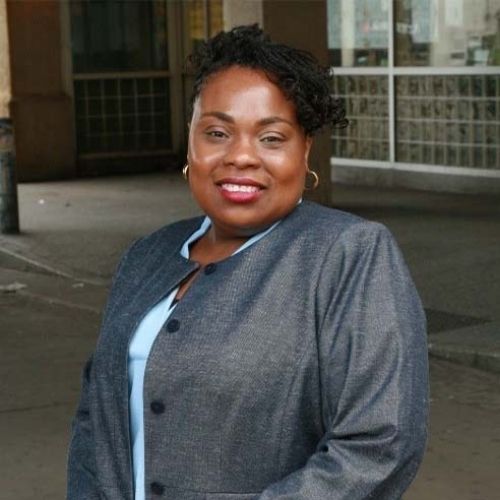
Farah S. Despeignes
Parent of students in 7th and 8th grades, New York City Department of Education
"Educational equity means giving students and families what they need in order to reach the standards. This means real and adequate investments in underserved and under-resourced schools and communities because the two of them go hand in hand — you cannot have one without the other."
Farah S. Despeignes serves as the current president of the District 8 Community Education Council and of the New York City Coalition for Educating Families Together, an offshoot of the Bronx Parent Leaders Advocacy Group, of which she was also the president.
Farah is a teacher by profession, a community organizer by default, and a political activist by design. She is the mother of two fantastic young men who are the loves of her life.
Farah is ferocious in her defense and advocacy of children and public education. Her teaching career began at the City College of New York, where she obtained her undergraduate and graduate degrees in literature and history. There, she taught comparative literature, the classics, and humanities classes. She has also taught General Equivalency Diploma classes at the Equal Opportunity Center in Harlem, operated by the Borough Manhattan Community College. Additionally, she has taught American history and human services classes at Touro College. As a permanently certified New York State teacher, she has also taught secondary school English and was a lead teacher for many years.
How do you hope to use your voice to advance educational equity in New York?
I wish to be a voice in an education movement that will transform how our children (and families) are educated in this city and this country. To that end, I will teach children and adults to advocate for themselves and one another, and give them a platform to do so.
In your own words, what does educational equity look like to you?
Educational equity means giving students and families what they need in order to reach the standards. This means real and adequate investments in underserved and under-resourced schools and communities because the two of them go hand in hand — you cannot have one without the other.
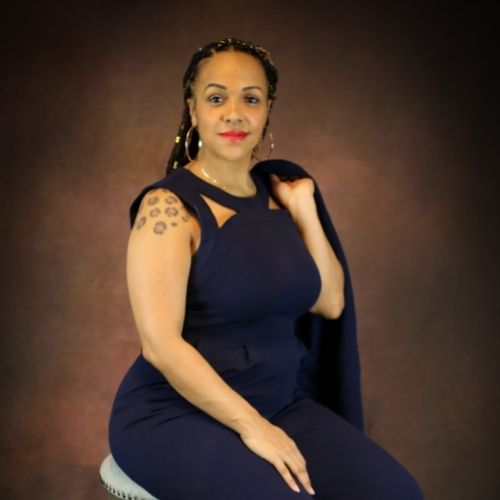
Gabrielle Mosher
Parent of a 2nd grade student, Buffalo Public Schools, Western New York
"Education equity to me is eliminating barriers and providing tools to assist our families in meeting the needs of their children — our students. This way, we can have a 360 approach to meeting community needs and engaging families."
Gabrielle became involved in her daughter’s school through the parent engagement committee, where she previously served as the community resource liaison. A high school teacher and a member of the Urban Teacher Collaborative of SUNY Buffalo State, Gabrielle has also been involved in many philanthropic initiatives in Buffalo. She has served as the past secretary for the Buffalo Urban League Young Professionals, where she also governed as the education chair for two terms.
Gabrielle is passionate about schooling, student learning, and engagement. She believes parents have a duty to be more involved in their children’s schools and districts.
How do you hope to use your voice to advance educational equity in New York?
I will use my voice to step in the bind for disengaged/misinformed families of our students. I will advocate for our families, as I educate them on the state of our finances and resources available in our region.
In your own words, what does educational equity look like to you?
Education equity to me is eliminating barriers and providing tools to assist our families in meeting the needs of their children — our students. This way, we can have a 360 approach to meeting community needs and engaging families.
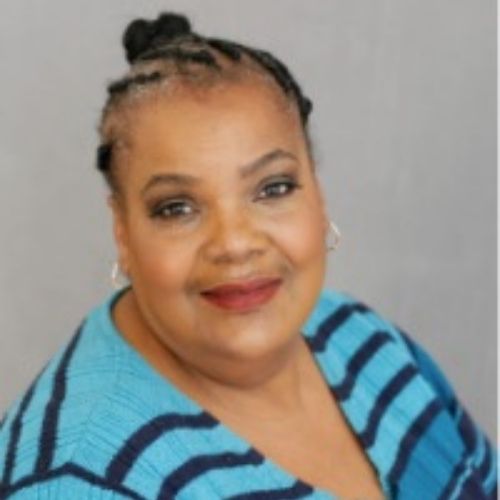
Jimmie Brown
Parent of students in 6th, 7th, and 9th grades, New York City Department of Education
"Educational equity is when every student is met at their level and the curriculum can advance them to meet their full potential academically, socially, and mentally, while also helping them learn how to adapt to this changing society and world."
A native of Harlem, New York City, Jimmie is a parent to six children. She attended local public schools from elementary school through high school, and earned a bachelor’s degree in sociology from the College of New Rochelle. Jimmie then furthered her education by obtaining a dual masters in general education and special education, along with a third degree in reading from Adelphi University.
Jimmie is committed to ensuring that all children — no matter what their economic status may be — receive a fair and equitable education. Jimmie has volunteered as a surrogate parent in District 5 for children with special needs. In addition, she worked for the New York City Department of Education as a classroom teacher and assisted in developing Individualized Education Plans for children’s educational enrichment.
Although she is no longer teaching, she continues to be involved in education through the School Leadership Team, Parent Advisory Council, Friends of the Children Parent Advisory Council and Citywide Title I. Additionally, Jimmie is one of the founders of the Northern Manhattan Perinatal Partnership, which aims to reduce infant mortality and continues to function as one of Harlem’s outstanding community service foundations.
How do you hope to use your voice to advance educational equity in New York?
To share my thoughts and to listen to others’ ideas and find ways together to see that all public school students get an equitable education.
In your own words, what does educational equity look like to you?
Educational equity is when every student is met at their level and the curriculum can advance them to meet their full potential academically, socially, and mentally, while also helping them learn how to adapt to this changing society and world.
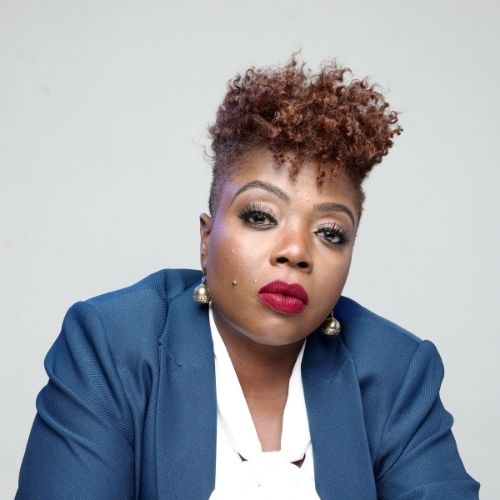
Lynette Battle
Parent of a 10th grade student, Sewanhaka Central High School District, Long Island
"Educational equity means equity in every aspect of education for every child."
As an advocate for her child and all children in the Sewanhaka Central High School District, Lynette wants to be equipped with as much information as possible.
By developing skills in policy writing, power mapping, and advocacy strategies, Lynette hopes to be an even better advocate for her child and other students. Lynette’s interest in advocacy started when she noticed that funding practices were different from school to school and that schools with predominantly students of color did not have the same access to outside funding sources, such as gifts from benefactors. She took her concern directly to the superintendent and advocated for more equitable funding. Lynette is also involved with the NAACP, Indivisible Long Island, and is a member of the Nassau Region Parent Teacher Association.
How do you hope to use your voice to advance educational equity in New York?
I want to use my voice to help fill the gaps for underrepresented communities.
In your own words, what does educational equity look like to you?
Equity in every aspect of education for every child.
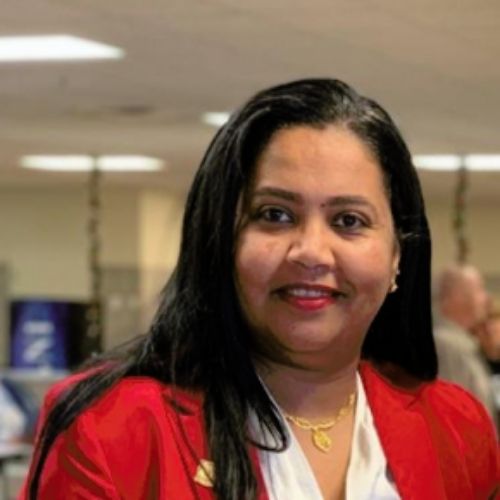
Mai Abdullah
Parent of students in 9th and 11th grades, Rush-Henrietta Central School District, Finger Lakes
"To me, educational equity looks like every student having access to opportunities to succeed, regardless of what that success may look like to them, and are supported and needs are met, held to high expectations, treated with dignity and respect, feel valued and their strengths are celebrated."
Mai is a parent of three wonderfully and equally unique children, two of whom are 9th and 10th-grade students in the Rush-Henrietta School District. She has the privilege of being a part of their lives and witnessing the amazing characters they are becoming.
Mai became involved in her children’s schools and district when they started kindergarten to educate herself so she could better help them. She became more invested when she saw the disparities in services provided to Black and Brown students with disabilities.
As an immigrant, Mai hopes that she is a role model for parents and guardians with similar background to inspire them to get involved and have the mindset that they are an equal partner in their child’s education. Mai also serves as a Board of Education member for the Rush-Henrietta Central School District.
How do you hope to use your voice to advance educational equity in New York?
I hope to bring attention to issues that pertain to underserved communities.
In your own words, what does educational equity look like to you?
Every student has access to opportunities to succeed, regardless of what that success may look like to them, and are supported and needs are met, held to high expectations, treated with dignity and respect, feel valued and their strengths are celebrated.
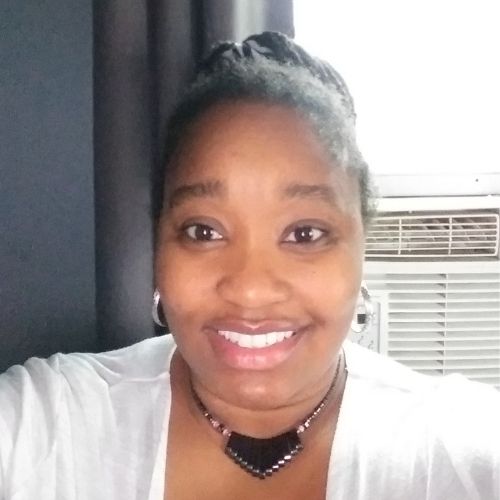
Marenda Thornton-Lawhorn
Parent of an 8th grade student, Gates Chili Central School District, Finger Lakes
"Educational equity is when students have the opportunity to have high-quality teachers and experiences, and all students are given the supports they need to be successful."
When her son entered kindergarten, Marenda became very involved and vocal about how she felt about her son’s experience. Since then, she has stayed involved in advocating for her son’s education.
Because Marenda does not want other parents to feel the loneliness and helplessness she once felt, she continues to advocate for her children and all the children and parents coming behind her.
How do you hope to use your voice to advance educational equity in New York?
I really would like to advocate for more equitable practices in my district. I plan to attend school and district level meetings to get this work done.
In your own words, what does educational equity look like to you?
All students have the opportunity to have high-quality teachers and experiences. All students are given the supports they need to be successful.

Mary Sotomayor
Parent of 4th and 8th grade students, Copiague Union Free School District, Long Island
"To me, an equitable education system would help all students develop the knowledge and skills they needed to be engaged and become productive members of society."
Mary currently serves as the membership coordinator for the New York State Parent Teacher Association, where she is responsible for increasing the number of people who support the children of New York State as PTA members. From a professional perspective, Mary’s full-time career experience in marketing enables her to help the NYS PTA market, brand, and promote the association’s mission.
At the time Mary joined her PTA, she learned that the Parent Teacher Association had a dire financial situation. This would result in her then 1st-grade daughter inheriting a huge debt that would force the school to eliminate enrichment activities for her daughter that the PTA normally provided. Mary organized a group of parents who used their corporate skills to eliminate their local PTA’s debt. Her daughter’s school was able to continue providing the many educational assemblies they had in the past and their first winter social as a result of their efforts.
How do you hope to use your voice to advance educational equity in New York?
Information is always key. You don’t know what you don’t know. I hope to use everything I learn to further opportunities for both my community and NYS PTA.
In your own words, what does educational equity look like to you?
To me, an equitable education system would help all students develop the knowledge and skills they needed to be engaged and become productive members of society.
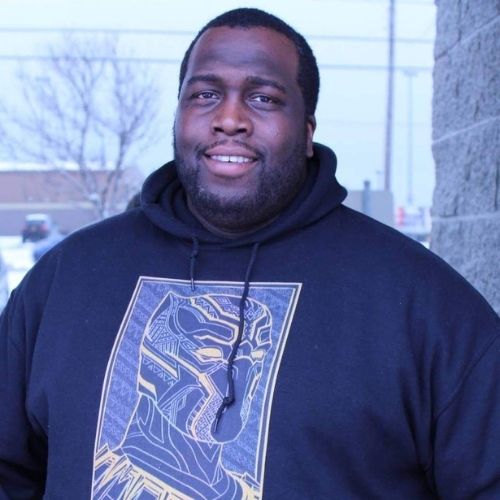
Maurice L Haskins
Parent of two children in 3rd and 7th grades, Rochester City School District, Finger Lakes
"To me, educational equity is when an educational system allows for true creativity and diversity."
Maurice is the proud father of two children and resides in Rochester. He served as the MultiSite Director for Quad A for Kids and is the current co-chair of ROC the Future’s Parent Engagement Collaborative Action Network.
The Future’s Parent Engagement Collaborative Action Network collaborates with the National Parent Leadership Institute to bring parents together and inform systems-level change. Maurice wants parents to know that they have the power to engage, explore, and create change in the systems that impact the children of the village.
Maurice earned an associate degree from Monroe Community College, a bachelor’s degree in community and human services from Empire State College, and a master’s degree in strategic leadership from Roberts Wesleyan College.
How do you hope to use your voice to advance educational equity in New York?
By understanding the educational system and ways to dismantle and reimagine parents’ involvement within it.
In your own words, what does educational equity look like to you?
An educational system that allows for true creativity and diversity.
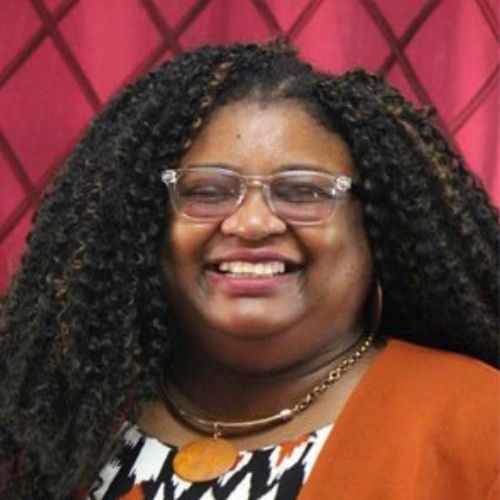
Melanie Gooden Baker
Parent of students in 7th, 10th, and 11th grades, Brentwood Union Free School District, Long Island
"Access means that all students have the opportunity equitably to strive to fulfill their greatest potential, and should not be limited, have their legs stymied, so that advancement becomes just outside their reach. It implies a growth mindset, resilience training, and trauma-informed training, to undergird our students to achieve despite challenges. All students deserve the chance to dream and to go after those dreams!"
Melanie Gooden Bakerleverages her more than 20 years of expertise in education, with a focus on special education, to advocate for better outcomes for all children.
As a wife and mother of three sons, including her firstborn son, who is multiply differently-abled with autism and visual impairment, and an education advocate, she commits to the education of the whole child within a diverse, inclusive, and multicultural framework, such as the promotion of positive student identity formation, leadership and character development, and student motivation.
Melanie strongly believes in facilitating inclusive opportunities for learners with special needs, standing steadfast in her personal mission of creating safe spaces in which all students can thrive holistically. Neither zip code, nationality, immigrant status, nor ability should limit a student’s potential to thrive and have equitable access to education opportunities.
This belief led her to become involved in her sons’ schools and their school district as a member of her Parent Teacher Association. Recently, she was nominated as the mental health chair for the Suffolk County Parent Teacher Association Board of Managers and serves as a member of the Superintendent’s – Diversity, Equity and Inclusion Team: Excellence for All! for the Brentwood Unified School District.
How do you hope to use your voice to advance educational equity in New York?
I hope that by speaking up and through the power of conversation with stakeholders, we will build connections with the power of our shared stories and our commonality; and will build a bridge to benefit all our students, no matter their zip code, ethnic or cultural background, socio-economic status or whether or not they have a disability. All should have equitable access to opportunities.
In your own words, what does educational equity look like to you?
Access means that all students have the opportunity equitably to strive to fulfill their greatest potential, and should not be limited, have their legs stymied, so that advancement becomes just outside their reach. It implies a growth mindset, resilience training, and trauma-informed training, to undergird our students to achieve despite challenges. All students deserve the chance to dream and to go after those dreams!
